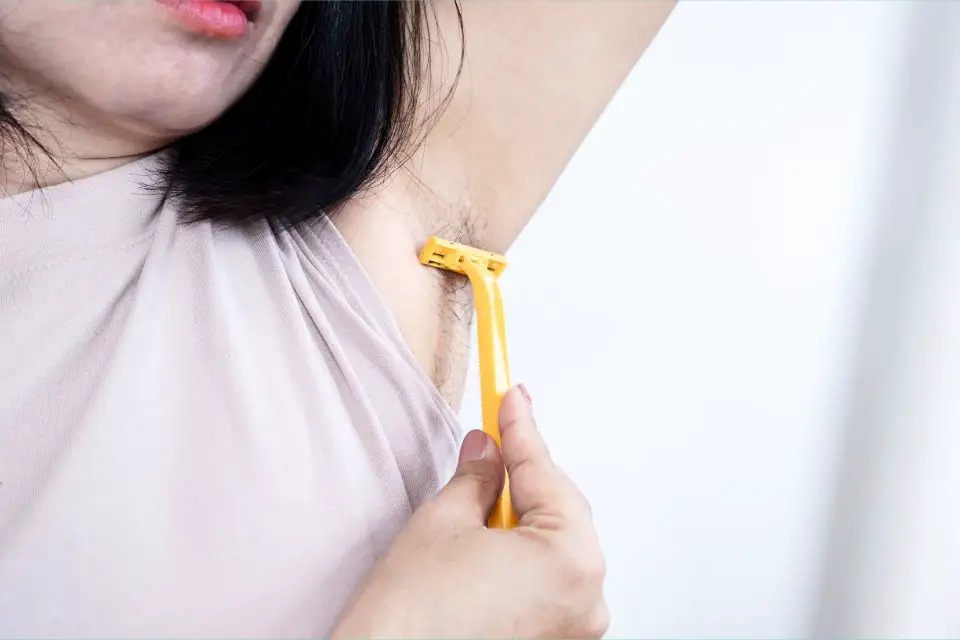A common technique for removing hair permanently is laser hair removal. To get the most outstanding results, it is crucial to thoroughly prepare your skin before having this treatment. Is it okay to shave before a laser hair removal appointment? This is one of the most often-asked questions. In short, yes, you can shave before laser hair removal. ‘Can I do shave before laser hair removal?’ is a common concern, and there are some essential guidelines to follow to ensure the best outcome. This article will explore why shaving before laser hair removal is recommended, how close to your appointment you should shave, and some valuable tips to help you get the most out of your treatment.
Understanding Laser Hair Removal
What is laser hair removal?
Laser hair removal employs lasers to target and eliminate undesirable body hair. A light beam is emitted, and when it strikes the pigment in the follicles, it damages them and prevents further growth. Laser hair removal can be used on anybody with unwanted or excess hair, such as the face, legs, arms, underarms, chest and back.
How does laser hair removal work?
The melanin in a person’s skin is the goal of laser hair removal, which then uses intensely focused light pulses on killing the hair follicles. As a result of the pigment in the follicle absorbing the light, the hair’s root is destroyed, making it impossible to regrow. Multiple treatments are required to eliminate unwanted body hair since different hairs enter their growth cycles at different times.
Preparing for Laser Hair Removal
Pre-treatment instructions
It is essential to follow pre-treatment instructions before undergoing laser hair removal. One of the most frequently asked questions is whether shaving is okay before laser hair removal. It’s best to avoid shaving right before your treatment, as laser hair removal targets the pigment in the follicle, which a razor blade would remove. However, if you need to shave beforehand, try not to do so within 24 hours of your appointment and be sure you don’t pluck or wax the targeted area. Also, please refrain from using harsh exfoliants on the skin, such as scrubs or grainy cleansers, as this can cause irritation and make it difficult for the laser energy to target only the follicles.
How to shave before laser hair removal
Thin layers of skin can be ripped away from the body when shaving if you use enough pressure on the razor blade. If you shave just before your laser hair removal appointment, use caution. To minimize skin grazing, we advise using a safety razor. This skin may be itchy and irritable if it is not given enough time to heal.
Why shaving is necessary before laser hair removal.
Shaving before laser hair removal is a crucial step in the treatment process. Hair follicles need to be visible, which occurs when cut close to the skin’s surface. Without shaving, the laser energy will be absorbed by longer, thicker hairs, making it difficult for the laser to target and remove them. Additionally, if the hair is not removed before treatment, there is a risk that it can catch on fire because of being exposed to intense heat from laser energy. This could cause burns or other skin damage. It is also recommended that any remaining stubble should be shaved off immediately after your appointment to prevent irritation and allow for maximum results from each session. Ultimately, shaving helps ensure that the laser can effectively target and destroy unwanted hairs for permanent removal with minimal risk of skin damage or discomfort during treatment sessions.
Can You Shave Before Laser Hair Removal
Yes, you can shave before laser hair removal.
Shaving before laser hair removal is not discouraged. Shaving can make the treatment more effective. The laser needs to target the hair follicles directly, and shaving helps ensure they are exposed. It also means there won’t be any debris blocking the light from reaching them, which could lessen its effectiveness. However, it is essential to avoid waxing or plucking before your session, as these methods remove the entire follicle and render the laser ineffective in those areas. Furthermore, it’s suggested to wait at least 24 hours after shaving before getting laser hair removal so that skin sensitivity can first lessen. Lastly, if you shave before a session, try not to use a razor blade with multiple blades or an electric shaver, as these will cause too much trauma and risk of infection in the treated area.
Why shaving is recommended before laser hair removal.
Shaving before laser hair removal is highly recommended as it helps expose the base of each hair follicle for the laser to target. This makes the laser more effective and can reduce the number of treatments required for successful results. As a result, most clinics will require clients to shave before their appointment. If a client does not shave, there is an increased risk that some hairs will be missed by the laser and not treated correctly, resulting in ineffective outcomes. Moreover, when shaving before treatment, any slight irritation caused by coarse or thick hairs is less likely to interfere with laser effectiveness during treatment. Finally, it’s essential that if clients do choose to shave before their appointment, they use a new razor blade and avoid pulling on the skin while doing so to minimize potential skin irritation throughout treatment.
How close to your appointment should you shave?
It is essential to consider how close to your laser hair removal appointment you should shave. It is recommended that you shave the area that will be receiving laser treatment 1-2 days before your appointment. This will allow for a more accurate and thorough treatment, as freshly shaved skin provides an unobstructed view of the hairs that need to be treated. Additionally, shaving too close to the appointment may cause irritation or ingrown hairs since the skin is most sensitive immediately after shaving.
Shaving before your laser hair removal appointment also allows for better hair retention during treatments. When there is no stubble present on the surface of the skin, it’s easier for lasers to target individual hairs without damaging surrounding skin cells. Additionally, removing any excess hair ensures more even energy distribution and reduces overall treatment time since less energy needs to be applied for desired results to occur.
When considering how close before an appointment you should shave for laser hair removal treatments, it’s best practice to do so 1-2 days prior for optimal results and comfort levels during sessions.
Shaving Tips for Laser Hair Removal
Use a clean and sharp razor.
Using a clean and sharp razor before laser hair removal treatments is essential. A dull razor can cause skin irritation and lead to ingrown hairs, resulting in discomfort and further complications with the laser treatment process. It would help to use a fresh blade each time you shave to ensure good results during the procedure. This helps decrease the risk of any possible infections or damage to your skin while removing unwanted hair.
When using a razor, apply a thin layer of shaving cream or gel to reduce friction between your skin and the blade. Afterwards, shave in small strokes against the direction of your hair growth for an even shave without causing additional irritation or discomfort on your skin’s surface. Finally, rinse with cold water and pat dry with a soft towel for best results. Taking extra caution when shaving before laser hair removal will help ensure that you get optimal results from your procedure.

Avoid using shaving creams or gels.
Shaving before laser hair removal is not recommended as it can interfere with the results. When shaving, you should avoid using creams or gels to reduce the risk of skin irritation, burns and other complications. A water-based lubricant like Cetaphil may be used when shaving before laser hair removal. This is because these products are gentler on the skin and will reduce the chances of any adverse skin reactions. It’s also essential to make sure that you use a sharp razor while shaving so that there isn’t any tugging at the hairs, which could lead to ingrown hairs or other issues. Additionally, it would help if you always shaved in the direction of your hair growth to minimize irritation and ensure an even shave.
Do not shave immediately before laser hair removal.

Shaving before laser hair removal is not recommended as it can cause burns and other skin damage. When shaving, the hairs are cut at a certain length, which can result in less energy absorbed by the follicles during the laser treatment. If these follicles absorb too much energy, it could lead to burns or blisters on the skin. Additionally, any nicks or cuts resulting from shaving can be vulnerable to inflammation when exposed to laser energy.
Another reason you should not shave immediately before your laser hair removal appointment is that freshly shaved skin becomes more sensitive right away and may be more likely to experience pain due to the heat of the laser energy. To minimize discomfort and ensure optimal results, waiting at least 24 hours after shaving before having a laser hair removal treatment is best. Furthermore, waiting allows for a few days of growth so that enough follicle material is present for the technician to target with their laser.
Related Reading: Does hair fall out after laser hair removal?
Conclusion
In conclusion, shaving before laser hair removal is integral to the pre-treatment process. Shaving aids in removing lengthy hair from the skin’s surface so that the laser energy may more efficiently target the hair follicle. Shaving a day or two before your appointment, but not immediately before, is recommended to avoid irritation and sensitivity in the treatment area. Following the tips mentioned in this article, such as using a clean and sharp razor and avoiding shaving creams or gels, can also help to achieve the best results from your laser hair removal treatment. Properly preparing your skin can maximize the benefits of laser hair removal and achieve smooth, long-lasting results.



